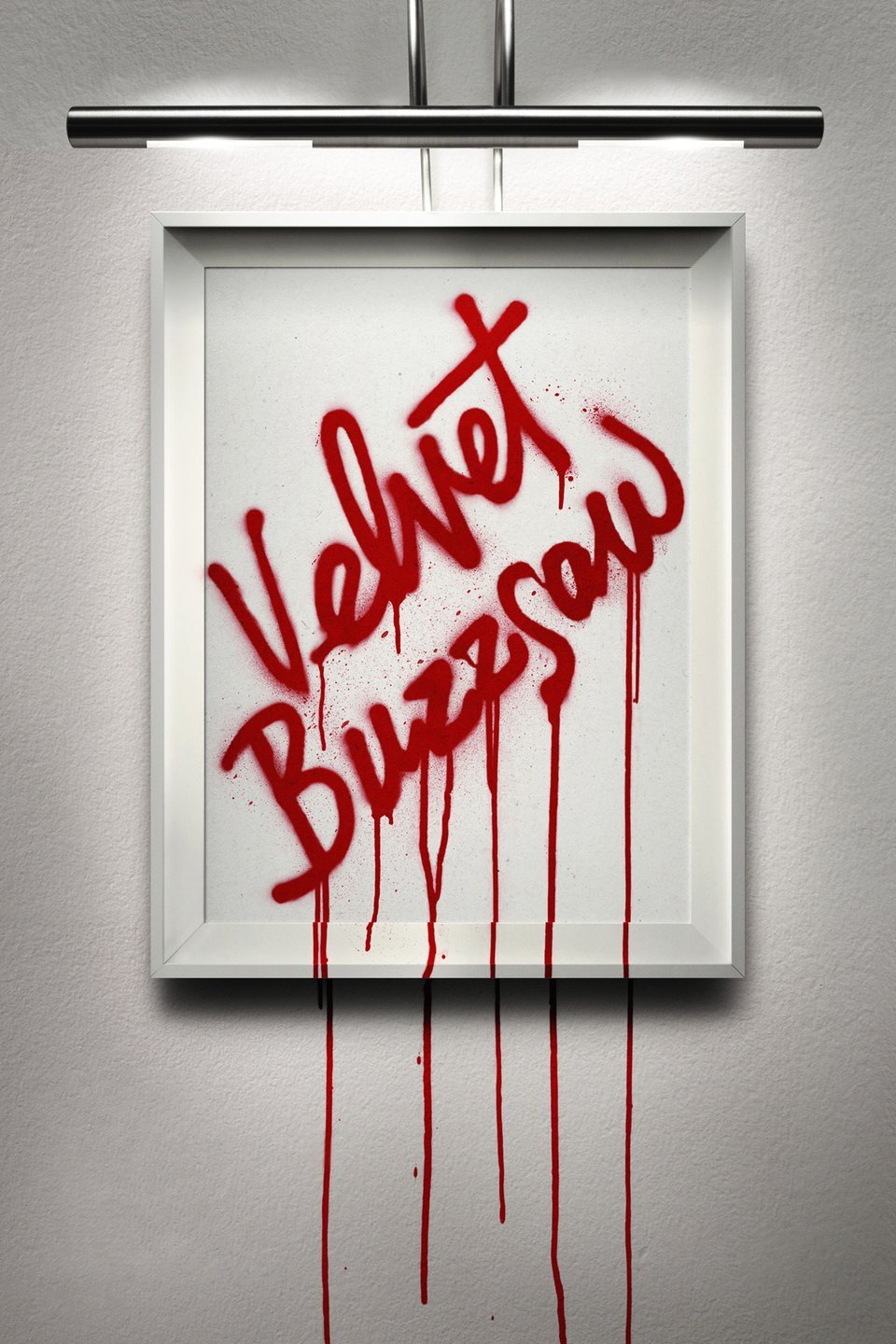
I'd like anyone calling me a shill to take note of how many movies I like that eviscerate the art of criticism.
Dan Gilroy and Jake Gyllenhaal team up once more to explore the cynicism of human nature and the potential destruction upon decency that can be unleashed in the path of unchecked ambitions and the more toxic side of artistic passion, this time via the excessive decadence and hypocrisy of the world of high art.
The discovery of a tormented recently deceased man’s powerful
and haunting paintings presents a circle of friends composed of an influential
critic, an talent agent, a gallery owner, and a curator with an opportunity to
be at the forefront of a massive breakthrough in the high art community, only
to find each of them and their associates picked off one by one via
increasingly grisly circumstances before realizing that the art they intend to
package and sell against the posthumous wishes of its tragic creator may be
orchestrating their fates.
Aforementioned comparisons to Gilroy’s previous work, the
staggeringly bleak yet stupendously underappreciated “Nightcrawler” are fairly well founded; both
movies are about the pursuit of entrepreneurial industries built on the back of
artistic craftsmanship, the pieces of humanity we need to sacrifice to excel in
said industries, and most hauntingly, presenting an indictment of the society
that openly condemns such sacrifice yet perpetuates the operation of institutions
that reward them with success.
Where that film focused its narrative lens on the character
study of a clear sociopath however, “Velvet Buzzsaw” uniquely attempts to grapple
the multilayered superficiality of industries and critical review surrounding
art in the form of a high concept B-movie.
That clash of high minded subject matter and its chokehold
on expressions of raw and unfiltered emotion with the unapologetic set up and
execution of a direct to video schlock horror flick of the 80s is bound to rub
many an audience the wrong way.
On its surface level, the movie’s kills are a little bit
spread out and it doesn’t quite slam the culture it’s studying hard enough to
make said deaths instill the guttural sense of karmic satisfaction it occasionally
seems to be going for.
“Velvet Buzzsaw” is undoubtedly going to either be very
polarizing or land in the service of a fairly niche audience and while I can’t
blame those bound to be turned off by its lack of offering primal horror movie
satisfaction, I can say why it very much worked for me.
That reasoning coming primarily down to its indictment of art
connoisseurs and the culture of elitism perpetuated by their passions,
regardless of their intentions.
The film makes itself very clear on its view of the purity
of art and the damage being done to the voices that can nurture it by the financial
exploitation of an upper class so concerned with perpetuating an image that
they can’t even be honest with themselves.
It’s a hypocrisy oozes out of every frame of the film, from
the curator’s shameless efforts to package reluctant artists has something that
they’re not in contradiction to the work that earned their success to begin
with, to the gallery owner’s seedy underhanded dealings that contradict her own
modus operandi, and most prominently within the critic, so obsessed with the
way he is to be perceived by the world and the lies he has to commit to in
order to maintain that perception that he begins to lose the ability to
actually critique while raising the question of how much of these haunted
paintings are actually manifestations of his own budding psychosis.
Gilroy holds the rocky but bold production together with a
striking visual pallet that makes brilliant use of the limited space that he
had access to and a killer ensemble of terrific performances.
Toni Collette, Daveed Diggs, Rene Russo and several others
manage to perform superbly, straddling the line between caricature and
boisterous personalities in line with the aspects of high art culture they’re
all meant to represent in a way that delivers the symbolism without devolving
them into being onscreen cartoon characters.
The real killer performance however belongs to Gyllenhaal as
Morf, the art critic, who manages to pass in and out of several different
personas informed by a budding sense of self awareness regarding his own
pretentiousness and the parasitic
relationship he shares with the culture he surrounds himself in perpetuating
his own sense of self loathing almost flawlessly.
I suspect that the audience for “Velvet Buzzsaw,” one more
fascinated by art’s relationship between those partaking in industrializing it
and the effects of their flagrant disregards for its patrons below their class,
will be a much smaller market than the horror buffs the marketing was aiming to
target.
7 Pretentious Critiques out of 10
No comments:
Post a Comment